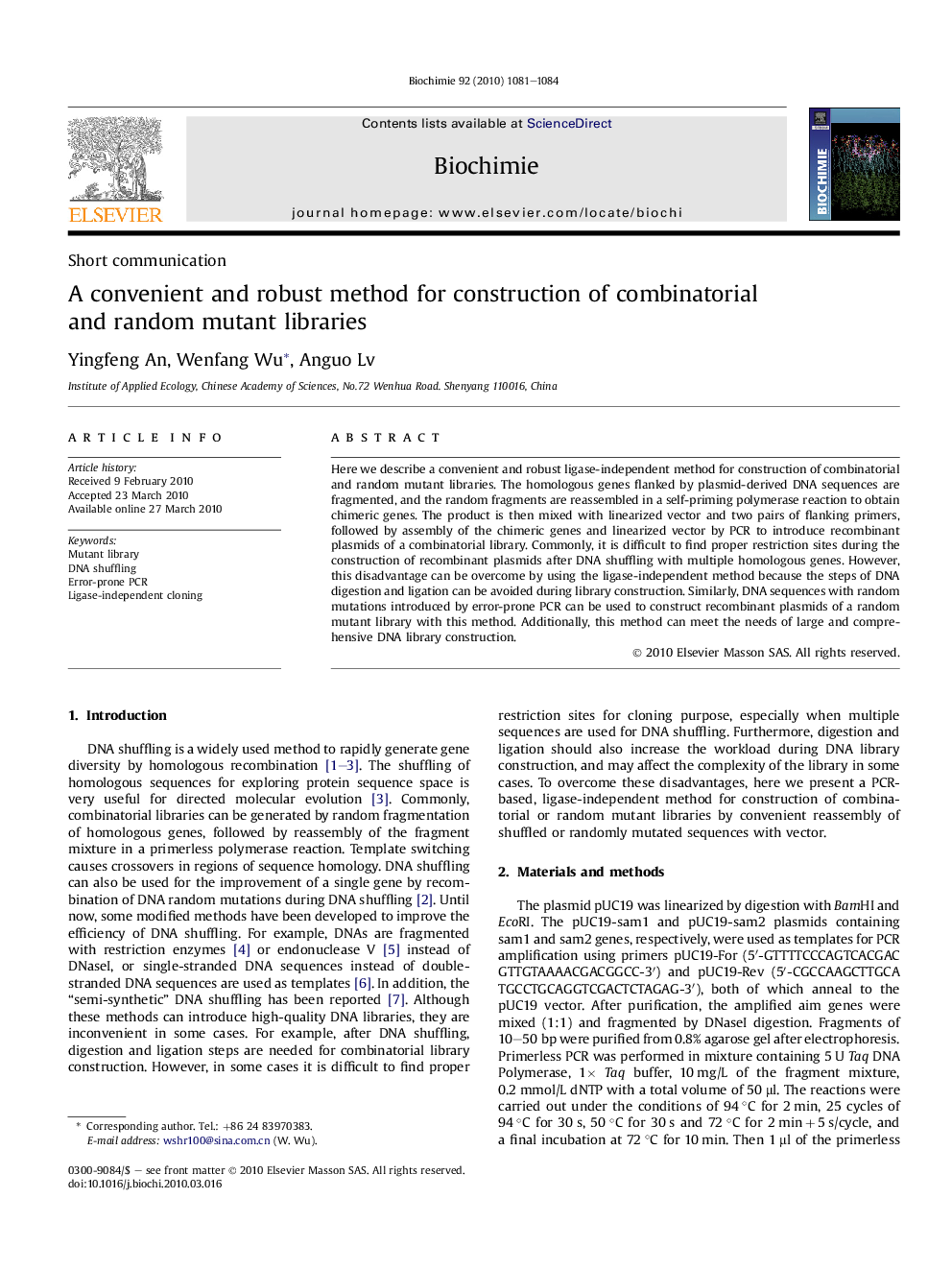| Article ID | Journal | Published Year | Pages | File Type |
|---|---|---|---|---|
| 1952722 | Biochimie | 2010 | 4 Pages |
Here we describe a convenient and robust ligase-independent method for construction of combinatorial and random mutant libraries. The homologous genes flanked by plasmid-derived DNA sequences are fragmented, and the random fragments are reassembled in a self-priming polymerase reaction to obtain chimeric genes. The product is then mixed with linearized vector and two pairs of flanking primers, followed by assembly of the chimeric genes and linearized vector by PCR to introduce recombinant plasmids of a combinatorial library. Commonly, it is difficult to find proper restriction sites during the construction of recombinant plasmids after DNA shuffling with multiple homologous genes. However, this disadvantage can be overcome by using the ligase-independent method because the steps of DNA digestion and ligation can be avoided during library construction. Similarly, DNA sequences with random mutations introduced by error-prone PCR can be used to construct recombinant plasmids of a random mutant library with this method. Additionally, this method can meet the needs of large and comprehensive DNA library construction.
